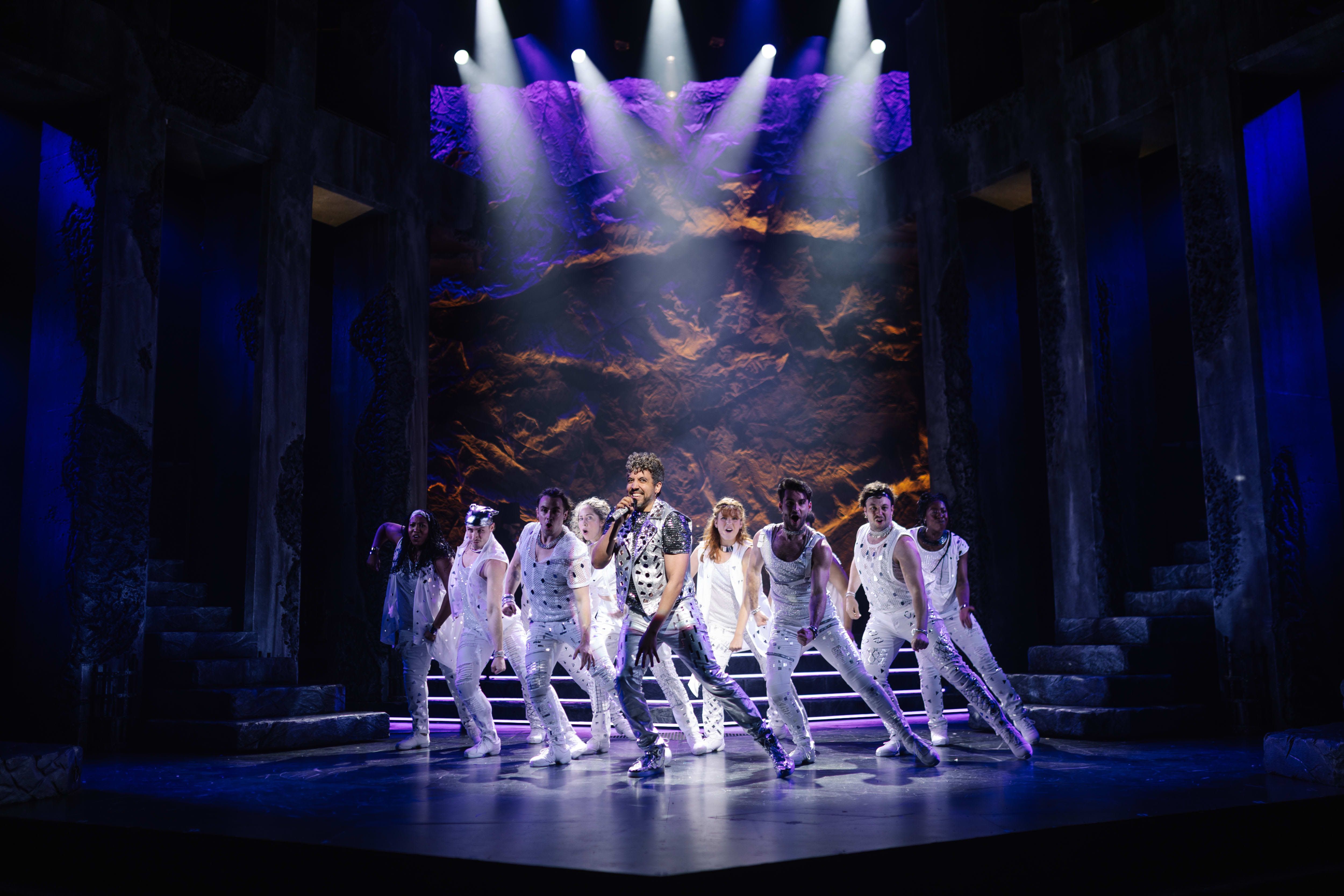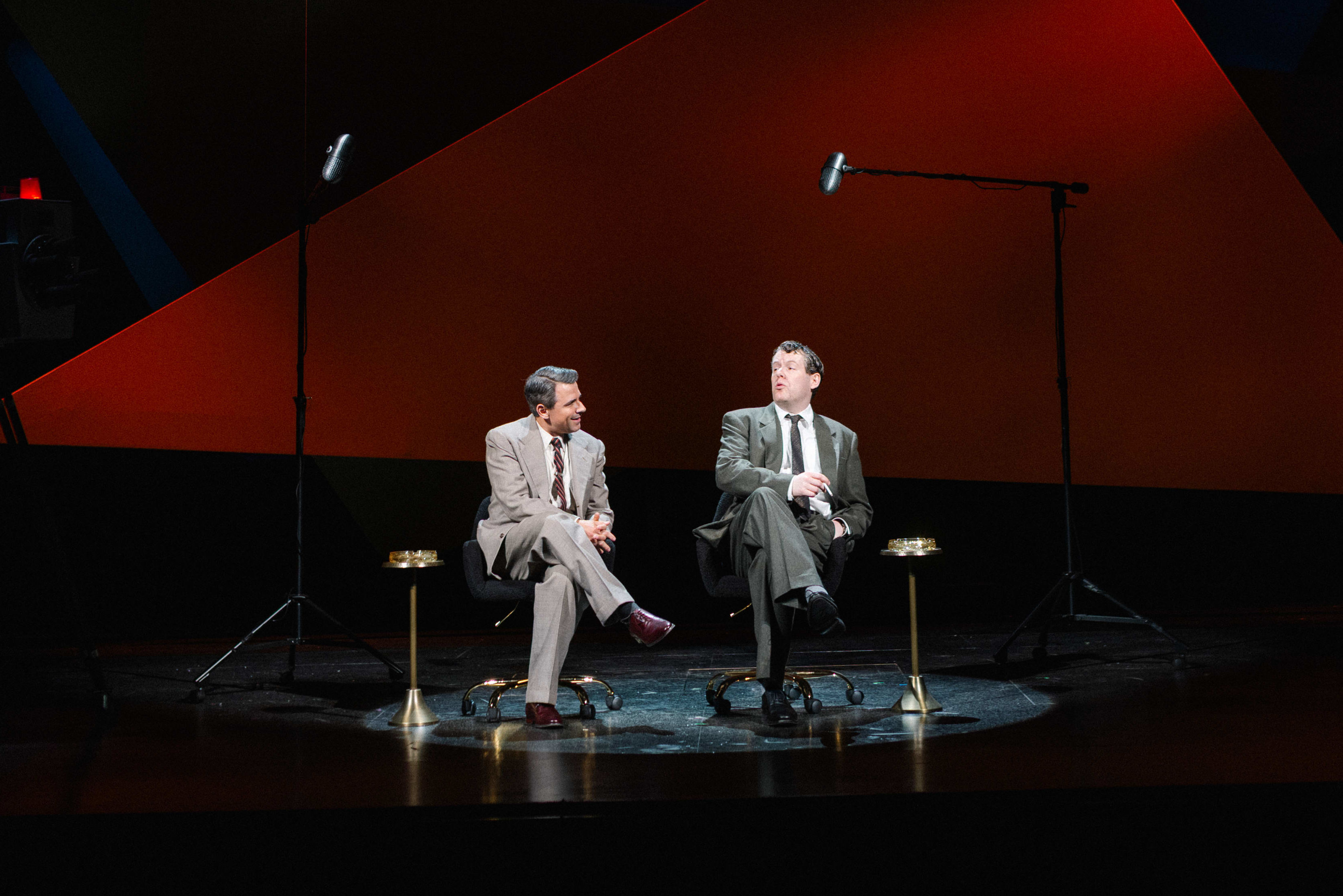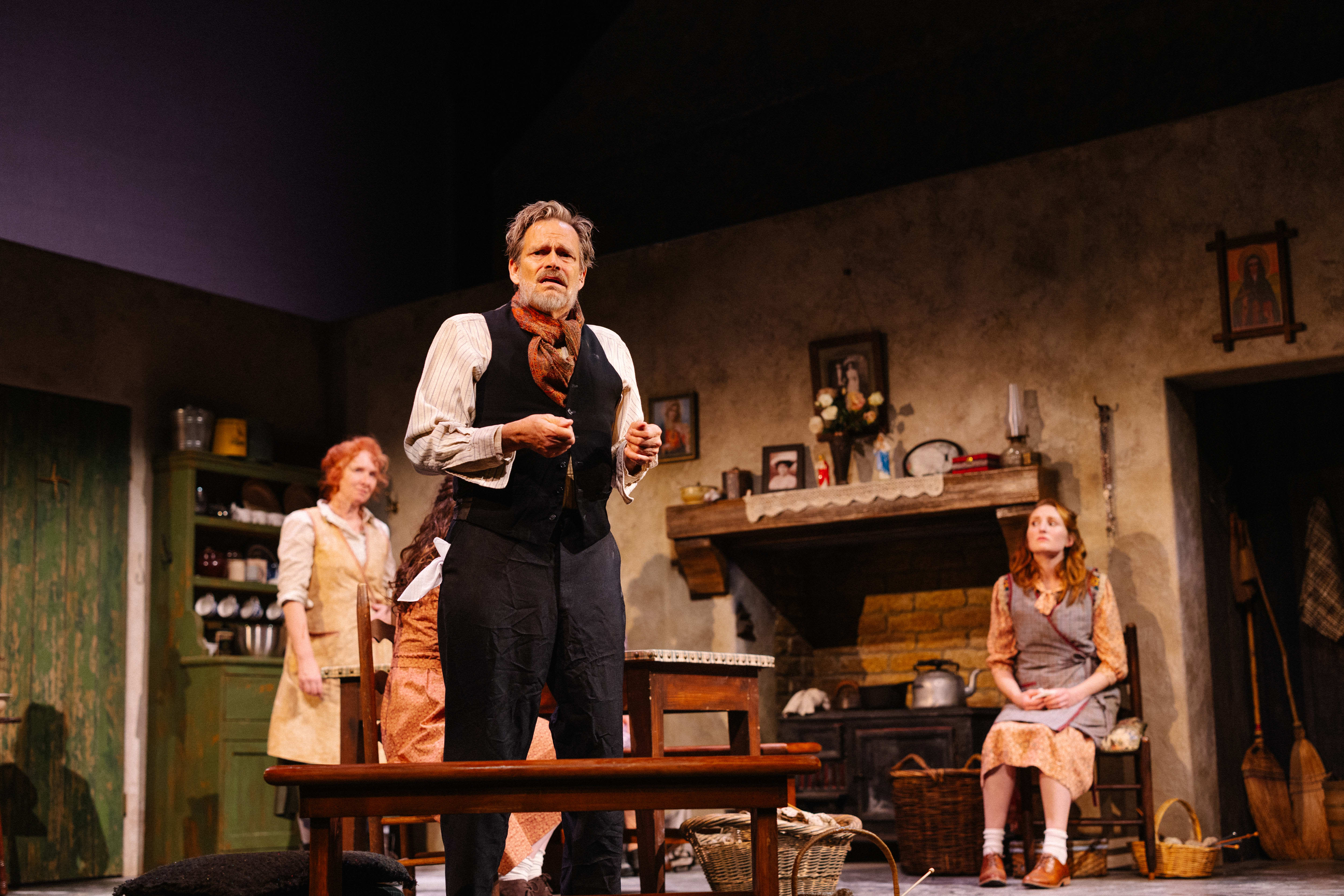FSU/Asolo Conservatory Faces Twilight: Los Angeles, 1992
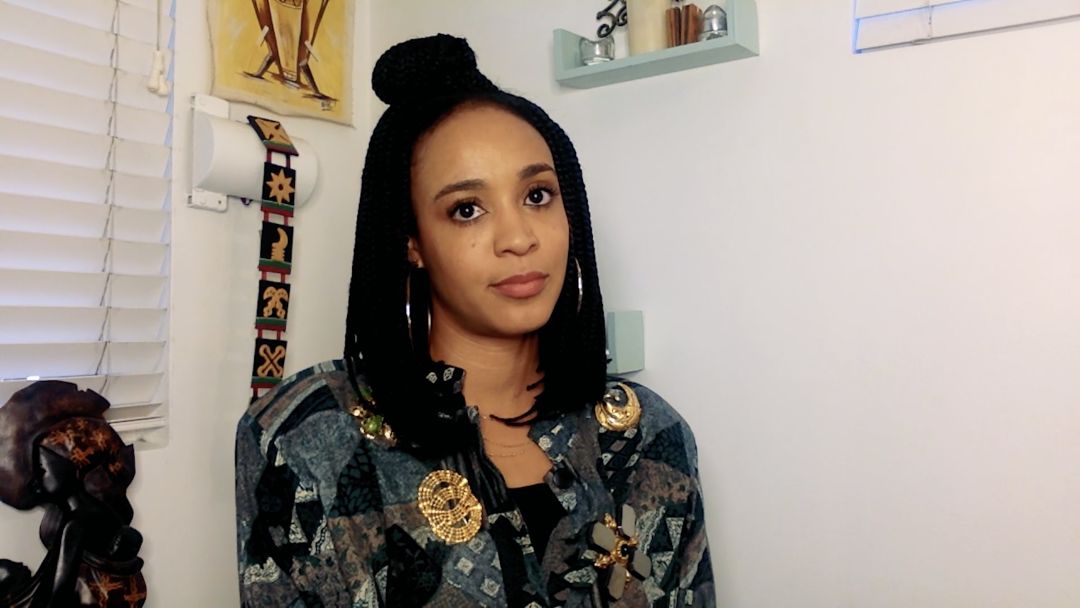
Devereau Chumrau in Twilight: Los Angeles, 1992
In a year of so many challenges, the FSU/ Asolo Conservatory faced its own. First, how to present a season at all given the restrictions of Covid-19? Second, how to respond meaningfully to the charges of institutional racism leveled by some Conservatory students, alumni and others seeking more understanding, opportunities and dialogue from the Conservatory system itself? The filmed, streaming version of playwright-actress Anna Deavere Smith’s Twilight: Los Angeles, 1992, now available to watch online, may serve to address both concerns.
The play, a series of monologues originally constructed for live theater by Smith, pieces together multiple interviews from people in Los Angeles in the early 1990s related to the beating of Rodney King by police officers, their trial, the aftermath and more, so it lends itself to the necessary adaptation to the small screen here. (Smith played all the roles onstage.), All of the second-year Conservatory students, and two alums also in the cast, were videotaped individually against various home, office and outdoor backdrops. Inevitably, the work loses some of its tension and power without the intimacy of being in a theater, watching them perform live. But the piece (long at 2 hours and 45 minutes, and occasionally a little repetitive in feel) still involves the viewer, while giving the actors a chance to employ their up-close facial expressions on camera in ways they could not onstage.
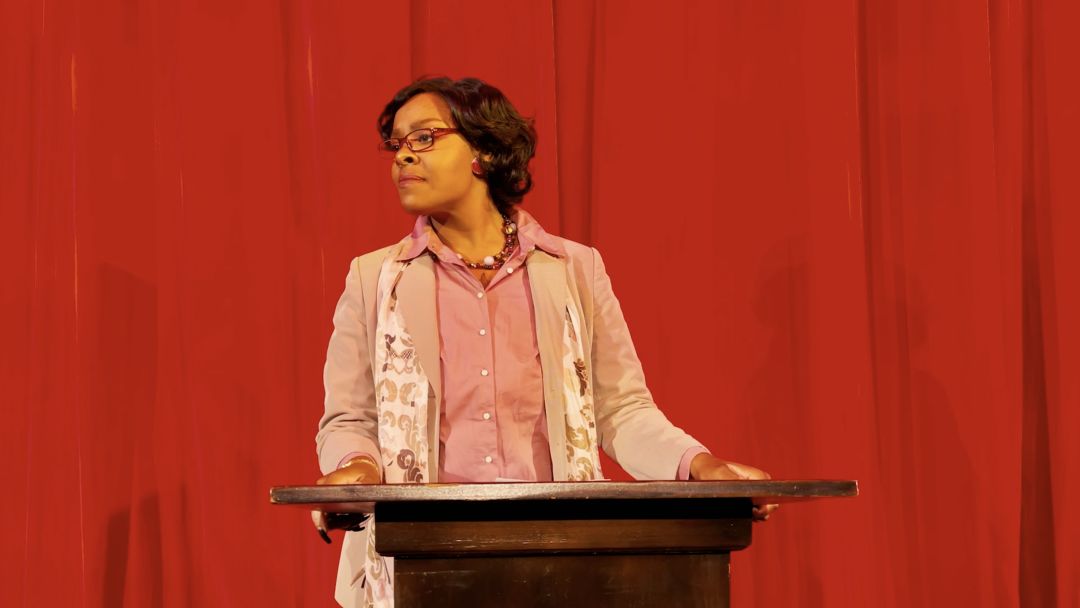
Nydira Jones in Twilight: Los Angeles, 1992
The stage for the conflagrations of the Los Angeles riots many of us remember is set by statistics about race, poverty and police violence in South Central L.A. before the Rodney King beating ever took place and filled out with actual news videotapes of that beating, rioting, looting, etc.—and be warned, watching those tapes is no easier now than it was for those of us in 1991 or 1992 who remember seeing them then. We meet a wide array of real people, from the neighborhood and the wider community—black, white, Jewish, Latino (although not, regrettably, the Koreans affected by the looting and violence in their neighborhoods, as director Benny Sato Ambush felt it wiser not to feature characters he could not authentically cast). They are from different backgrounds, income levels and points of view, but all were impacted in some way by what took place in L.A.
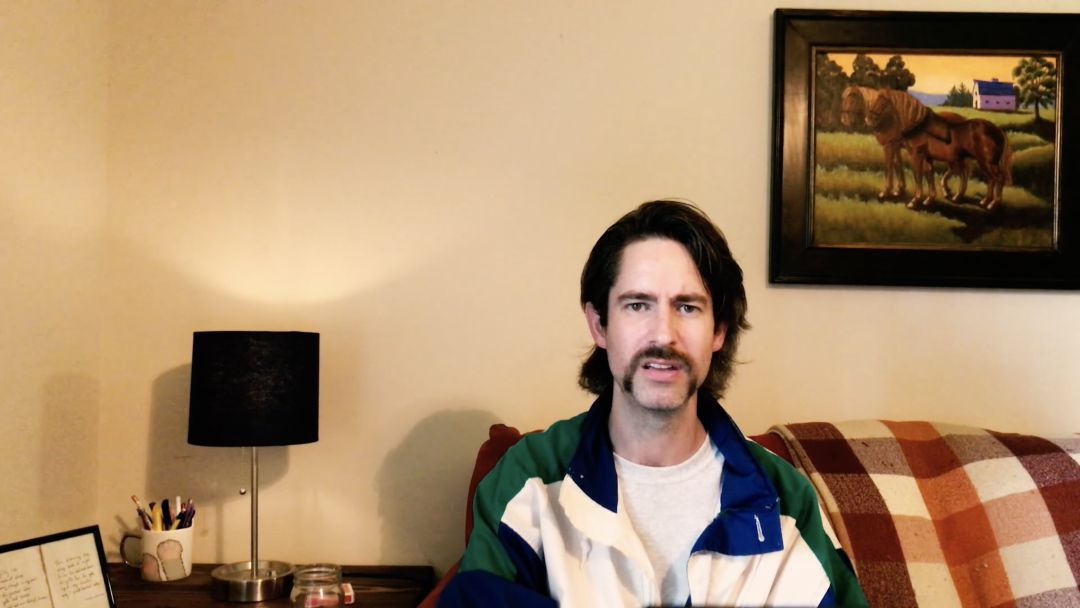
Bryan Lewis in Twilight: Los Angeles, 1992
Many cast members play more than one role, occasionally crossing gender, as in the case of the woman Josie Morales played by actor Francisco Rodriguez (a Conservatory alum) or coroner Dean Gilmore, a man played (memorably) by actress Merri Rashoyan, who recounts the many ways people died in the city. Among the most powerful monologues: those by Rodney King’s aunt Angela, played by Nydira Adams; mother and activist Theresa Allison (Devereau Chumrau, another alum); beaten truck driver Reginald Denny (Bryan Lewis), who says of the King case and reaction, “I thought it didn’t have anything to do with me”; and an anonymous white male juror in the first trial of the police officers charged with attacking King (it’s surprisingly emotional).
Given the political, racial and social climate we face again in the year 2020, Twilight: Los Angeles, 1992, is, unfortunately, all too timely. It leaves us with the question raised by the play’s former gang member Twilight Bey (Daniel Ajak), who closes the show with this piercing question about what we have just witnessed: “What y’all doin’?”
Twilight: Los Angeles, 1992 is available for viewing online through Dec. 20 at asolorep.org.
